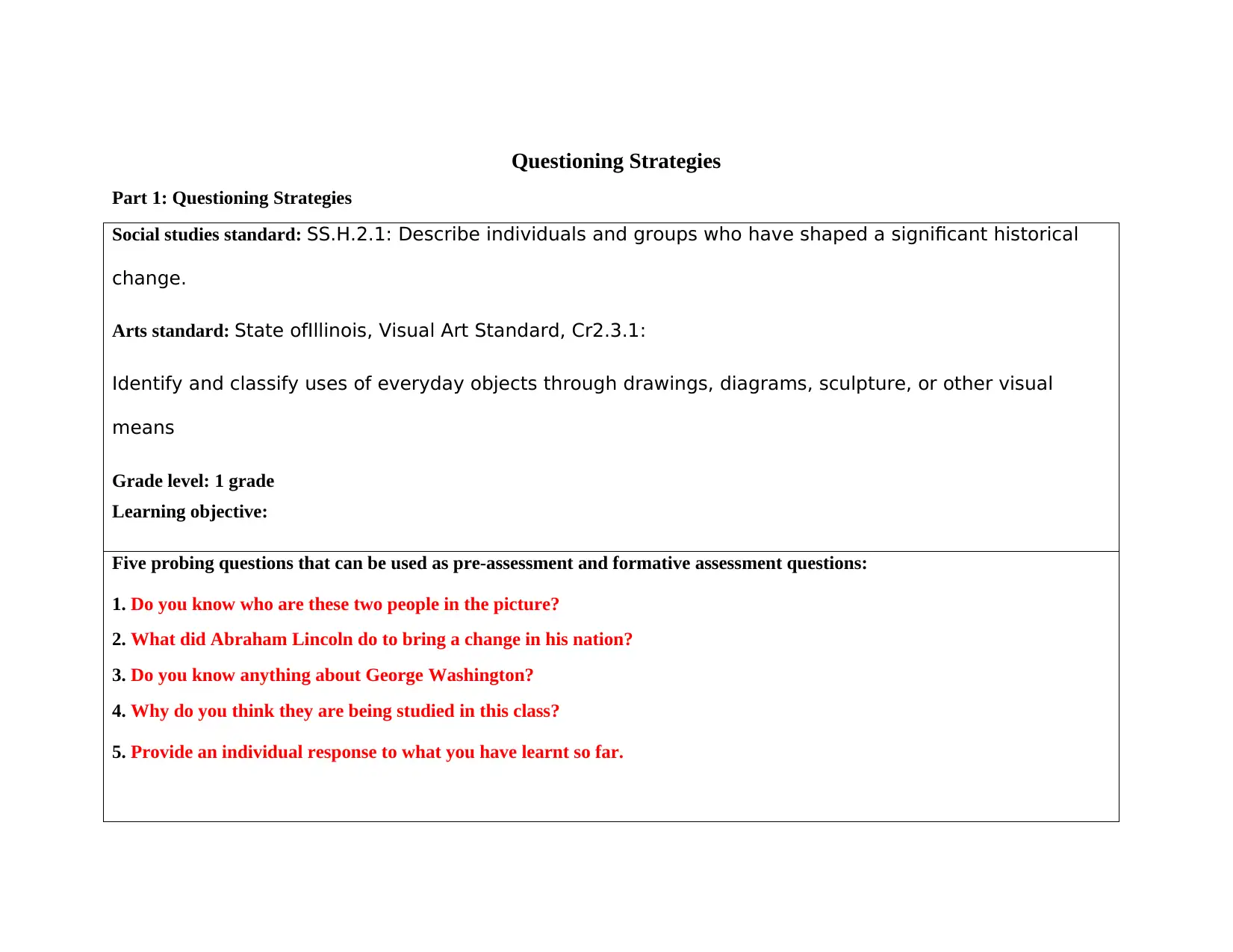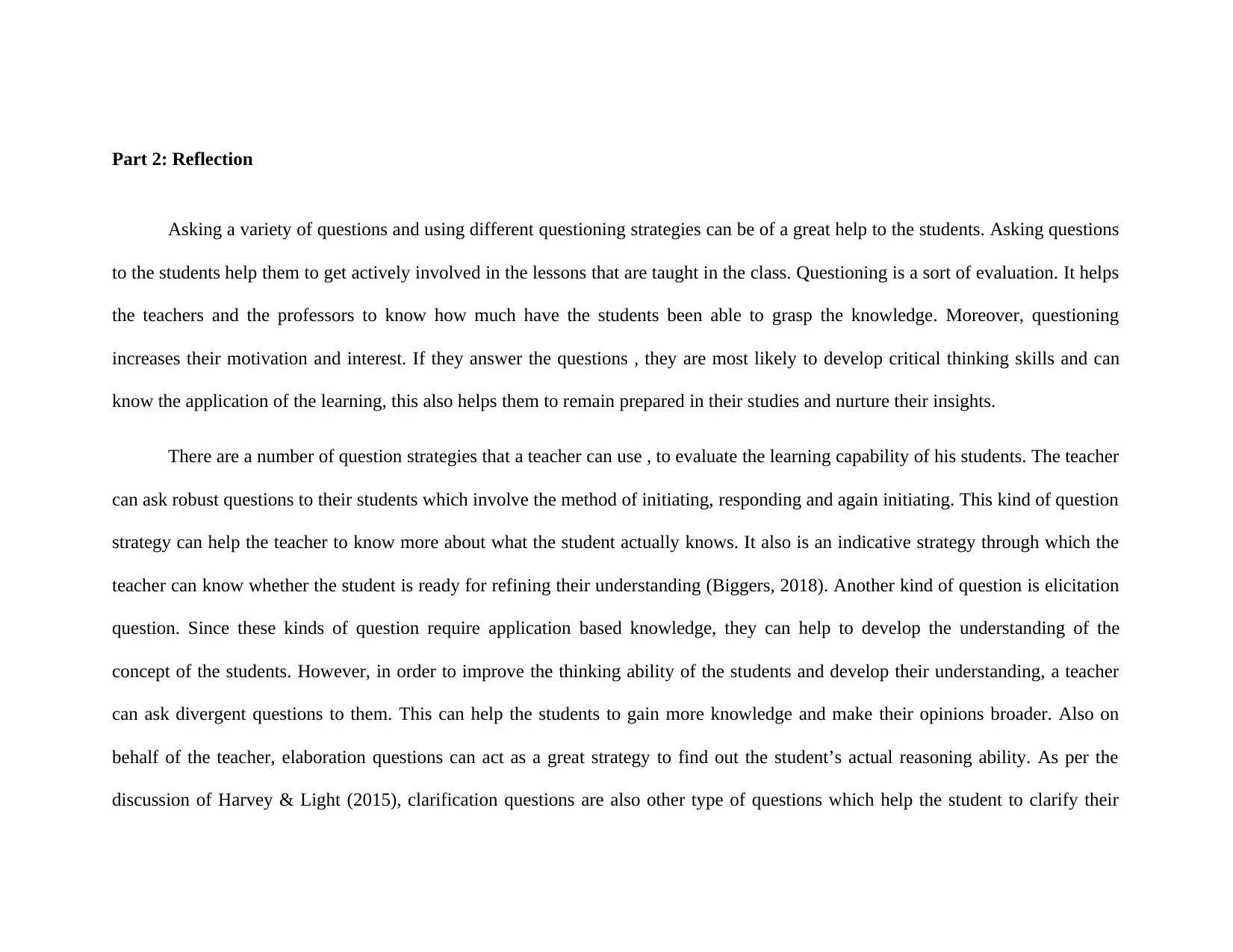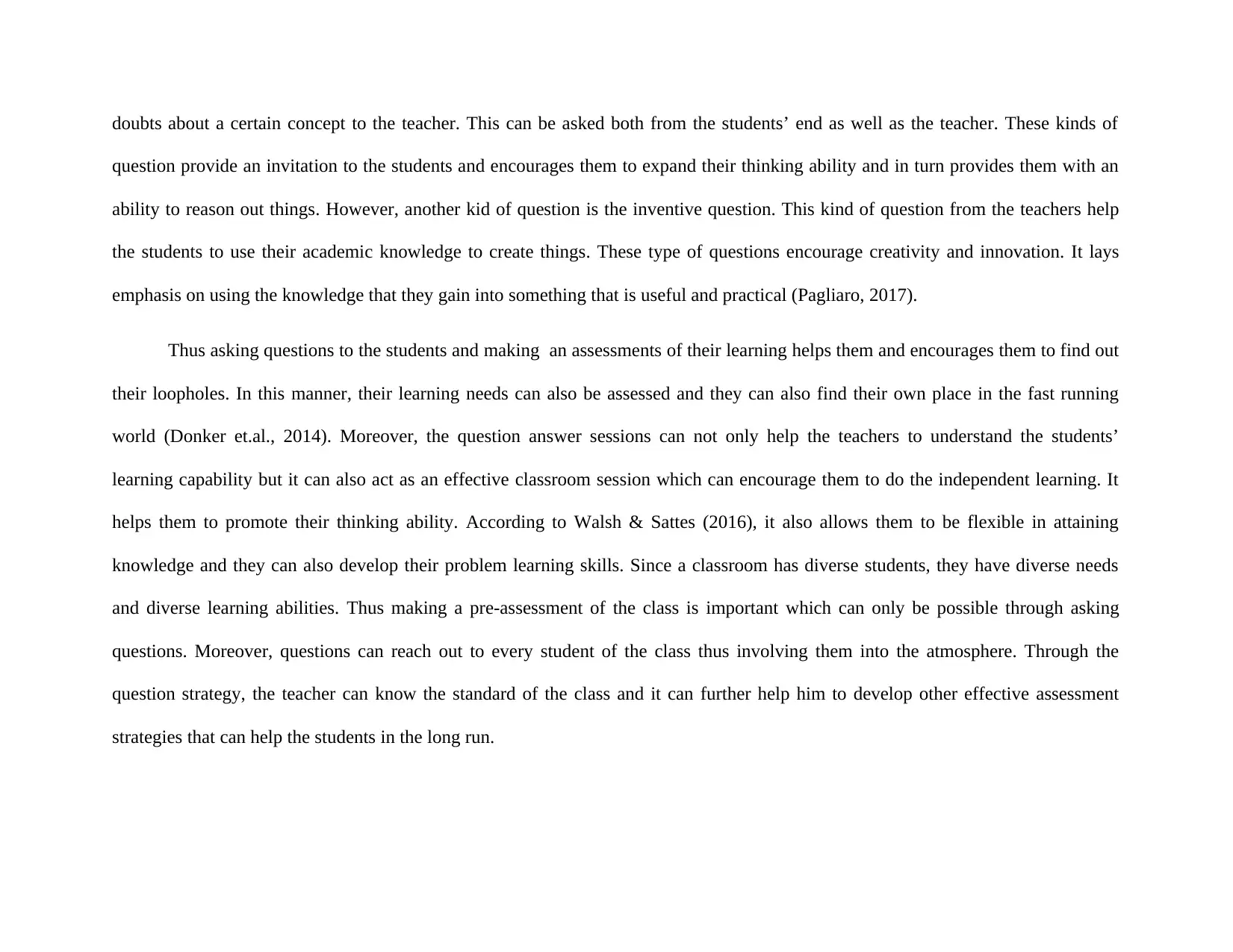Questioning Strategies: Enhancing Student Learning and Engagement
VerifiedAdded on 2022/08/27
|4
|1006
|212
Homework Assignment
AI Summary
This assignment focuses on questioning strategies in an elementary education context, specifically for first-grade students. It begins by outlining five probing questions designed for pre-assessment and formative assessment, aligning with social studies and arts standards. The assignment then delves into a reflection on the importance of questioning in fostering active student involvement, critical thinking, and the application of learning. It highlights various questioning strategies, including initiating-responding-initiating, elicitation, divergent, elaboration, clarification, and inventive questions, emphasizing their roles in evaluating student understanding and promoting independent learning. The reflection also underscores the value of pre-assessment through questioning to understand diverse student needs and create effective assessment strategies. The assignment references several research papers to support the discussed strategies, and provides a comprehensive view of questioning's impact on student learning and classroom dynamics.
1 out of 4











![[object Object]](/_next/static/media/star-bottom.7253800d.svg)